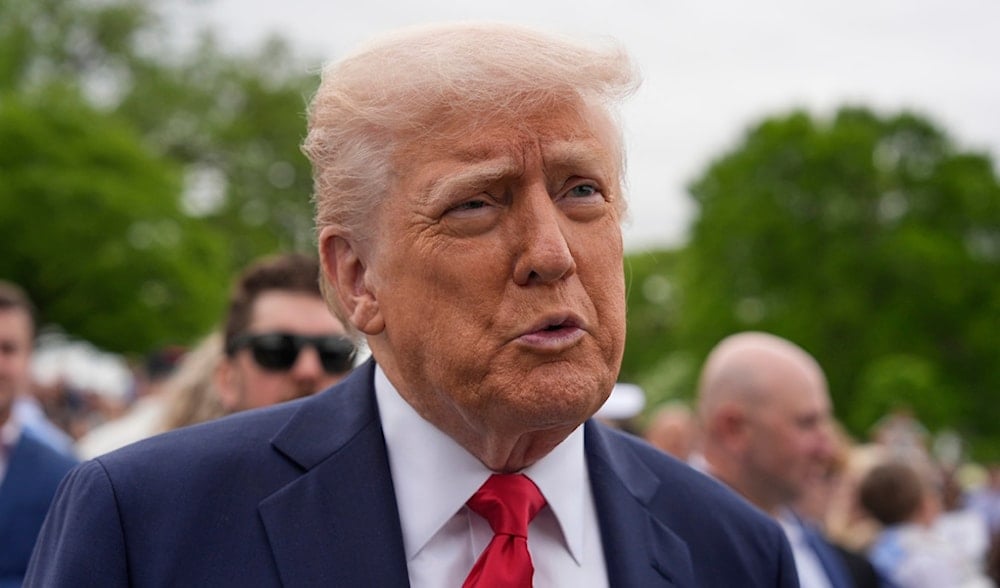Fact-checking declines as trust in institutions erodes in the US
The US' interest in fact-checking fades as trust in media, schools, and government declines, while misinformation grows amid political shifts.
-

President Donald Trump speaks to reporters during the White House Easter Egg Roll on the South Lawn of the White House, Monday, April 21, 2025, in Washington. (AP)
The United States’ focus on countering misinformation and disinformation is fading, as public skepticism towards once-trusted institutions grows.
Fact-checking, which gained prominence during Donald Trump’s first term, has since become deeply politicized, leading to waning enthusiasm for monitoring false information.
According to Pew Research Center, Americans are now less supportive of efforts to police misinformation than they were just two years ago, a trend seen across party lines.
Public schools and news media, once central to shaping factual discourse, are facing record-low trust levels alongside financial difficulties.
Misinformation debate becomes politicized
A February YouGov poll revealed that 44% of Americans trust information from the Trump administration "a great deal" or "a fair amount," compared to just 28% for the news media. This gap has widened since 2017, when trust in both was more balanced.
Mentions of "misinformation" and "disinformation" on major cable networks such as MSNBC, Fox News, and CNN have sharply declined since the pandemic, according to Stanford’s Cable TV News Analyzer.
The politicization of fact-checking has also led to a drop in the number of fact-checking sites globally, after years of growth.
Government efforts to combat misinformation are also being scaled back.
The State Department's Counter Foreign Information Manipulation and Interference office, which was tasked with countering foreign disinformation, is being dismantled, as confirmed by Secretary Marco Rubio.
Additionally, the National Science Foundation has withdrawn research grants related to misinformation, signaling a broader retreat from institutional fact-checking initiatives.
Social media platforms shift away from fact-checking
Even Democrats, who once championed stricter controls on false content, are losing interest. Pew data shows support among Democrats for government restrictions on false information online has dropped from 70% to 58% over two years.
Tech platforms are also pulling back, as TikTok is testing a "Footnotes" feature, allowing users to add context to videos, similar to X’s Community Notes.
Meanwhile, Meta has ended its fact-checking program, instructing teams not to penalize misinformation, and Google told the EU it will not implement fact checks in search results or YouTube rankings, despite new legal requirements.
While AI-driven content is accelerating the spread of misinformation, the public appetite for robust fact-checking is not keeping pace.
As trust in institutions diminishes and political divisions deepen, fact-checking is becoming a casualty of broader societal shifts.
Read more: X's Community Notes fail to counter US election-related misinformation

 3 Min Read
3 Min Read










